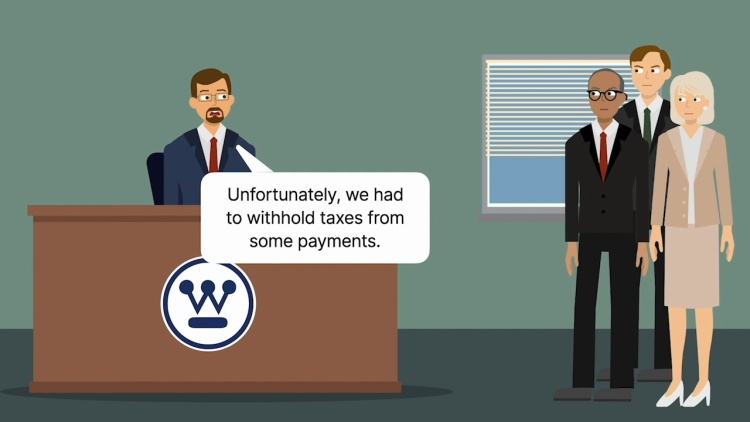Bingler v. Johnson
United States Supreme Court
394 U.S. 741 (1969)

- Written by Rich Walter, JD
Facts
An employer provided a program whereby an employee could pursue a doctorate in a field related to the employer’s work. In the first phase of the program, a participating employee continued working for the employer, and the employer paid for the employee’s after-hours academic work. In the second phase, the employer granted a substantial leave of absence to the employee. While on leave, the employee received a stipend from the employer based on the employee’s regular salary. The employee also kept all employer benefits and lost no seniority as a result of the leave. The employer had to approve the employee’s dissertation topic, and required regular academic-progress reports from the employee. After completing the second phase, the employee had to work for the employer for at least two more years. Johnson (plaintiff) participated in the program and claimed that his stipend was a tax-exempt scholarship under § 117 of the Internal Revenue Code of 1954. The Internal Revenue Service (IRS) denied Johnson’s claim. Johnson then sued Bingler, the IRS’s district director (defendant). At trial in the United States District Court for the Western District of Pennsylvania, the jury found that Johnson’s stipend was taxable income. Johnson appealed, and the United States Court of Appeals for the Third Circuit reversed the district court’s judgment. The United States Supreme Court granted certiorari because of a split between the circuit courts on the taxability of these stipends.
Rule of Law
Issue
Holding and Reasoning (Stewart, J.)
What to do next…
Here's why 899,000 law students have relied on our case briefs:
- Written by law professors and practitioners, not other law students. 47,000 briefs, keyed to 994 casebooks. Top-notch customer support.
- The right amount of information, includes the facts, issues, rule of law, holding and reasoning, and any concurrences and dissents.
- Access in your classes, works on your mobile and tablet. Massive library of related video lessons and high quality multiple-choice questions.
- Easy to use, uniform format for every case brief. Written in plain English, not in legalese. Our briefs summarize and simplify; they don’t just repeat the court’s language.





